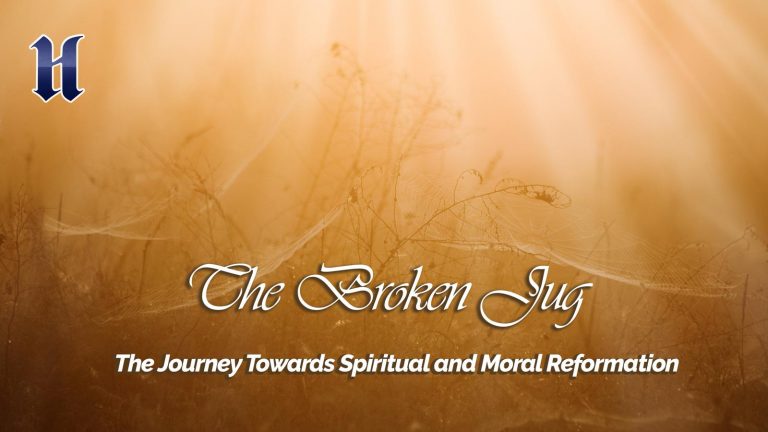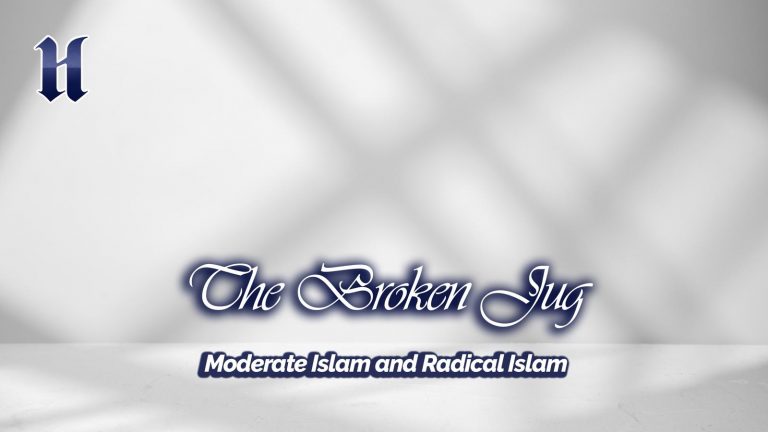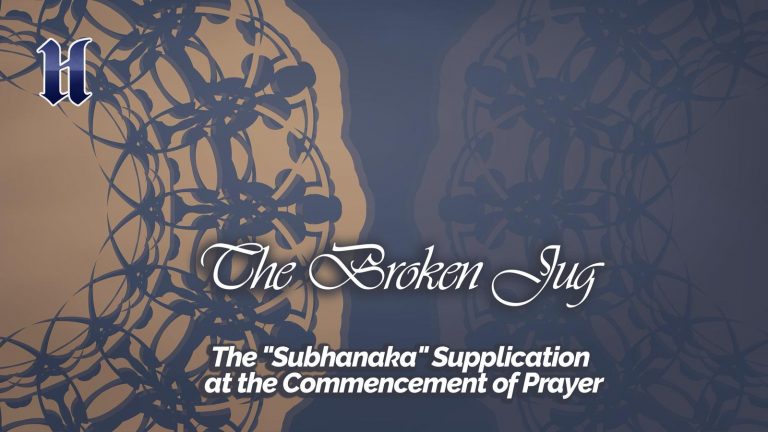Question: Overlooking vices that do not harm society is mentioned as one of the important characteristics of the devoted souls. If we look at the issue by considering the fact that forbidding evil is an important essential in Islam, what are the boundaries of overlooking sins and forgiving the evils committed?
Answer: First, it is necessary to make a distinction between individual vices and sins on the one hand, and wrongs and evils considered as a violation against the rights of the society on the other hand, as the approach towards each is different. In short, it is an essential to overlook sins limited to a certain individual and treat such people as leniently as possible. As for evils that harm another person or rights of the public, it is necessary to intervene physically, if possible. If not, it is necessary to intervene verbally, or at least to condemn those evils in one’s heart
The Way of Forgiveness and Leniency
There is no need to list the sins that only concern one person or describing the wrongs that adulterate pure minds, for it does more harm than good. All words and actions forbidden by Islam can be considered within this category. A person may have committed one or more of these. If such a person is not presenting a bad example for others to follow, not taking religious commandments lightly and mocking religious values, and not violating rights of the public, then it is possible to show forgiveness and leniency toward such a person. Many verses of the Qur’an express the importance of showing tolerance to people and responding even to their evil behavior with goodness. For example:
“…Ever-restraining their rage (even when provoked and able to retaliate), and pardoning people (their offenses). God loves (such) people who are devoted to doing good” (Al Imran 3:134).
As it is seen here, restraining one’s rage, pardoning people, and doing good are counted among the important attributes of pious ones. For this reason, in the face of others’ individual mistakes and sins, believers should act in accordance with these Qur’anic principles, overlooking them as much as possible.
In addition, the attitude to be taken, particularly in the face of some treatments and behaviors shown by some ignorant people, is turning away and keeping away from them. Indeed, the Qur’an commands believers to adopt such conduct in several verses:
“(Even so, O Messenger) adopt the way of forbearance and tolerance, and enjoin what is good and right, and withdraw from the ignorant ones (do not care what they say and do)” (al-A’raf 7:199).
“The (true) servants of the All- Merciful are they who move on the earth gently and humbly, and when the ignorant, foolish ones address them (with insolence or vulgarity as befits their ignorance and foolishness), they respond with (words of) peace, (without engaging in hostility with them)” (al-Furqan 25:63).
“They always turn away from and avoid whatever is vain and frivolous” (al-Mu’minun 23:3).
Not Revealing Sins While Diverting People from Evils
If a person insists in engaging in vices and sins, takes them lightly, presents a bad example for others with the transgressions he commits, or violates the rights of the society, then it is necessary to prevent this evil in a proper way. The Messenger of God, blessings and peace be upon him, taught us what to do in the face of such evils: “Whoever from you sees an evil, let him change it with his hands; if he cannot, let him change it with his tongue; and if he still cannot, let him be against it in his heart; this (last) one is the weakest level of faith.”1
Accordingly, the first thing to do with a man who has been stuck in a swamp is to hold his hand and pull him out of it. If you do not have the power to do so, you should receive help from somebody who is capable of it. But while doing that, it is necessary to avoid disclosing that person’s faults and sins, spreading the word about them and acting like a scandalmonger, embarrassing the person concerned and bringing shame on him in society. The real purpose here is to save that person from the evil that he has fallen into. If physical intervention is not possible, what needs to be done is to give proper counsel to the person. The manner of the counsel is of great importance here. For example, while giving a warning, it is necessary to take all alternatives into consideration and prefer a form of address that will not evoke a negative reaction. For this reason, the person who wishes to save a fellow brother or sister from a certain vice must express it only after having thought over it some ten times. And if that person’s address is likely to evoke a negative reaction in the person addressed, it is necessary to have someone else speak whose words will not make that person feel offended. At certain critical situations, it may even be necessary for the person giving the warning to disappear from sight and make the warning without even a face-to-face address. For example, you write two lines for the sake of a certain wrong that you have recognized, revise it some fifty times with your mild and sound considerations, and then push it under the door of the person concerned or leave it in his or her mailbox. Thus, you do not embarrass that person by blatantly mentioning his mistake to his face, and thus protect his dignity. The goal real purpose here is to help someone give up a certain evil. It is necessary then to consider very carefully the steps to be taken, never being as blunt as a kick in the shins. What matters is neither stating the evil to be evil, nor embarrassing the person who committed some wrong or sin. What matters is finding the most effective and softest way to divert that person from that evil.
Guidance and Warning with a Bitter Smile
For those situations where it is not possible to eliminate evils and wrongs physically or verbally, God’s Messenger taught us that it is necessary to disapprove of the conduct in one’s heart according to the scholars of Hadith. It is possible to add different commentaries as well. For example, it is possible to derive from this statement that it is necessary to cut off the heart’s attachment to a person who keeps committing evil—so much so that when you meet such a person, the sour expressions of your face, a bitter smile, and your turning away from that person can serve as a means for his realization of his mistake and cease to do it. In addition, as your stance is not against a certain individual, but against his bad behavior, you open your hands and pray to God “My God! Please save this fellow brother (sister) from this evil and make him feel disgusted by it!” Not even sufficing with that, you can say a thousand times in your prayers: “O God! Make faith beloved to us, endearing it to our hearts, and make unbelief, impiety and disobedience hateful to us, and make us among the rightly guided.”2 The Messenger of God stated that a prayer in absentia will be accepted.3
At a certain time in the past, someone mentioned a lapse by a certain friend of ours. Since that time, no day has passed without me praying for that friend. Similarly, a certain friend with a sound character was having problems of belief. God is my witness, I prayed for him at every prayer I made for myself. I saw being neglectful at this issue as disrespect and unfaithfulness to the rights of a fellow brother. Praying from the heart in this way is also a meaning that can be derived from the hadith quoted. Thus, simply interpreting the expression “in his heart” mentioned in the hadith as disapproving the act in one’s heart, cutting relations with that person, turning one’s back on him or her and leaving is incomplete. What really matters here is taking a kind of stance against a bad attribute God does not like, doing everything one can do in order to eliminate it, and thus saving that fellow brother or sister from that evil.
The Public’s Rights Are God’s Rights
Taking a stance against vices and evils that might somehow harm the society in a narrow or wider sense and thus endeavoring for their elimination is not only a societal and religious duty, but also a necessity of respecting God’s rights at the same time. Because, as it is known, rights of the public are at the same time considered rights of God in Islamic teachings. That is, evils that will corrupt a society from within are like a moth in terms of their harm and consequences. They are not like the sins whose harm remains on a personal level. Therefore, it is not possible to overlook and remain silent in the face of the evils of this first type. The officials with authority to enforce law must try to prevent those evils with the legal authority trusted to them, and believers must give their support to them, sometimes by appealing to authorities when necessary, sometimes by encouraging them at this issue, and sometimes by using their civil right to testify as a witness. Let us reiterate that the real point with all of these is not to embarrass a person at all. On the contrary, it is an endeavor to take a stance against evils that will eat away the society from within and to protect people from them.
In relation to our subject, it is possible to remember the following verse, which was revealed as a reprimand to a certain group from the Children of Israel but also sets an important essential for believers in general: “They would not restrain one another from doing the evil they did: indeed evil was what they used to do” (al-Maedah 5:79).
The people referred to in the phrase, “They would not restrain…” had not developed a collective mind to prevent the evils committed. They did not apply to the collective consciousness in this respect. There was no coordination among them. For this reason, those people who did not restrain one another from doing evil were consequently cursed. It is therefore necessary to develop a common mind concerning the duty of a person who witnesses evil, concerning the action to be taken by the officials in authority, and the general duties that fall to the society concerning this issue.
In conclusion, believers should try to forgive the unpleasant words spoken to them, which only concern them personally. Just as there are fluids and acids in a person’s digestive track to digest the food consumed, there must be similar “substances” in believers’ individual worlds of the heart and spirit to digest ugly, evil, and unfair things, so that they can comfortably digest the mistreatment they receive. However, if a group or movement is targeted and defamed through a certain individual, the issue is no longer personal. It is not correct for one person to swallow such wrongdoing on behalf of the group or movement. On the contrary, the necessary conduct in such a situation is trying to eliminate in lawful ways the wrongdoing against that person, such as with a formal statement, correction, and disclaimer. If the insistence in wrongdoing and unfairness continue, it is then necessary to resort to other legal means for the sake of silencing the transgressors, such as suing them for compensation. In the same way, although Bediüzzaman said he gave his blessing even to those who sent him from one prison to another, who condemned him to total isolation, and poisoned him many times over, he never remained silent with respect to his faith and spoke up against his oppressors, thereby defending the truth, the Qur’an, and the rights of the public.
1. Sahih Muslim, Iman, 78; Sunan at-Tirmidhi, Fitan, 11.
2. Ahmad ibn Hanbal, Al-Musnad, 3/424; Al-Bazzar, Al-Musnad, 3/175.
3. Sunan Abu Dawud, Witr, 29; Abd ibn Humayd, Al-Musnad, 134.
This text is the translation of “Kötülüklerden Sakındırmada Denge.”






